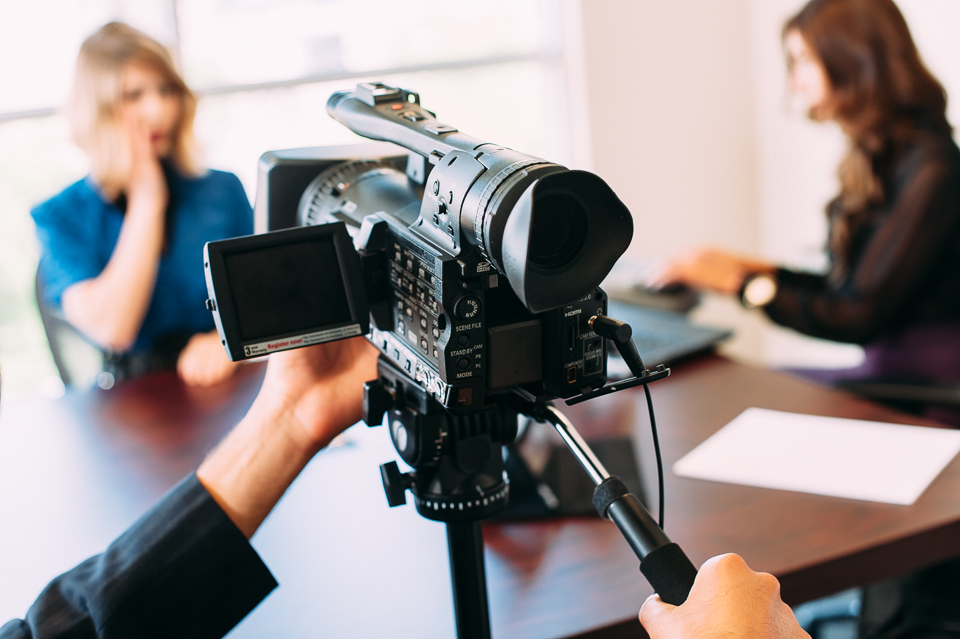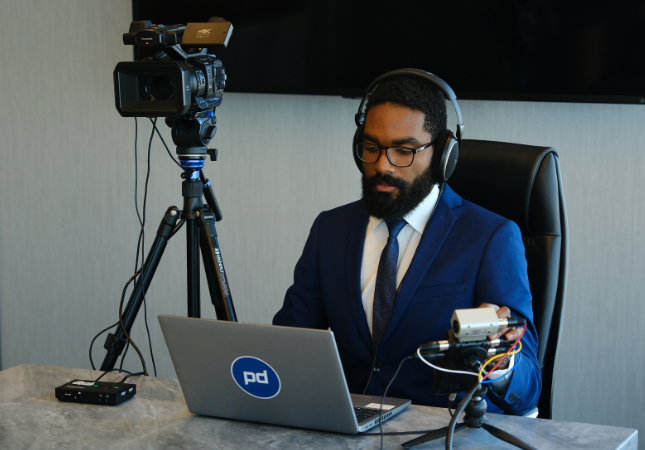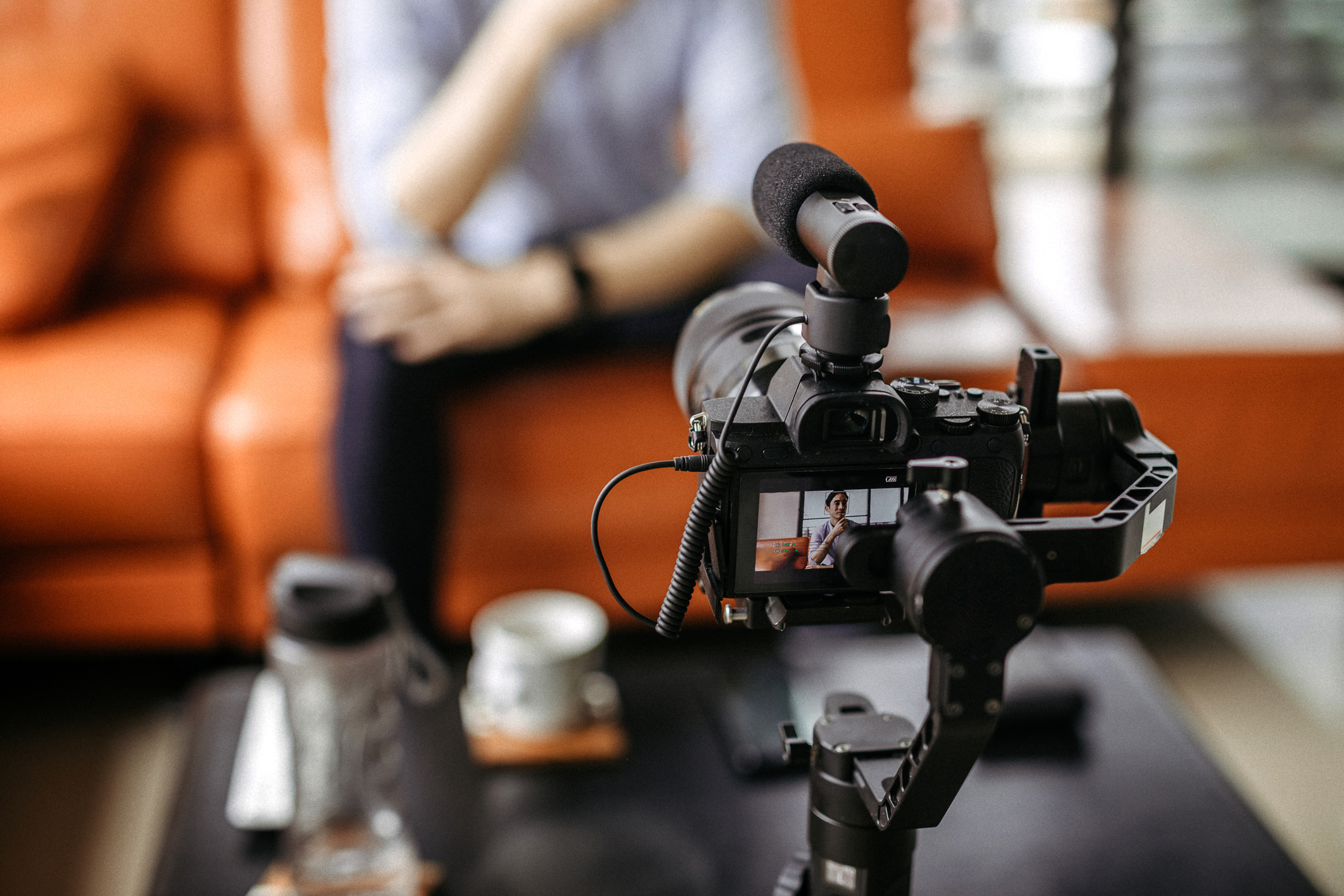The Relevance of Legal Video Depositions in Modern Legal Services: What You Must Know
Lawful video depositions have actually ended up being vital in today's legal landscape. They supply a multidimensional sight of witness testaments that traditional transcripts merely can not match. By capturing both non-verbal and spoken communication, these depositions boost the overall understanding of a witness's integrity. Nevertheless, the performance of video depositions depends upon various elements, consisting of conformity with legal criteria and ideal techniques (legal video depositions). Discovering these components exposes their true significance in contemporary lawful solutions
What Are Lawful Video Depositions?
Lawful video depositions serve as a crucial device in the litigation process. They entail videotaping witness statements in a video format, capturing both non-verbal and verbal communication. This approach allows attorneys to document the behavior, expressions, and responses of witnesses, supplying a richer context for the testament. Usually conducted in a regulated environment, these depositions are led by lawyers who ask questions while a stenotype reporter documents the dialogue. The resulting video can be crucial for trial prep work, as it enables attorneys to examine the trustworthiness of witnesses and refine their strategies. Furthermore, lawful video clip depositions can be utilized in various lawful contexts, varying from civil disagreements to criminal situations. The auditory and visual aspects of video clip depositions enhance the presentation of evidence, making it an essential part in the modern legal landscape. Generally, they add considerably to the efficiency and performance of lawful proceedings.

Advantages of Video Clip Depositions Over Standard Approaches
Video depositions provide various advantages compared to traditional approaches of taking witness statements. One substantial benefit is the capability to capture both aesthetic and audio components, supplying an extra extensive record of the witness's statements. This dual format enhances clarity and enables lawyers to reference particular subtleties during trial preparation. Furthermore, video depositions help with remote participation, making it easier for witnesses who might be inaccessible for in-person looks due to geographical restraints or health and wellness issues.Moreover, video clip depositions can expedite the total deposition process, minimizing the moment and costs linked with traveling and logistics. They also boost access, as videotaped depositions can be conveniently shared among legal teams and referenced any time. This convenience adds to better case management and prep work. On the whole, video depositions stand for a modern-day, reliable technique to collecting witness statements, lining up with the progressing needs of the legal occupation.
The Role of Body Movement and Tone in Testimonies

In lawful video clip depositions, body movement and tone play vital roles in communicating a witness's trustworthiness and trustworthiness. Nonverbal cues can give understandings right into a witness's psychological state, influencing how their testament is viewed. Understanding the influence of these components is vital for jurors and lawyers alike when reviewing the dependability of a testimony.
Nonverbal Communication Insights
While verbal interaction is typically stressed in lawful statements, nonverbal cues such as body language and tone play a necessary duty in sharing reliability and emotion. Onlookers of depositions may note that a witness's posture, gestures, and face expressions can significantly influence understandings of dependability. Constant eye get in touch with may indicate confidence, while avoiding gaze could suggest deceit or discomfort. The tone of voice-- its quantity, pitch, and speed-- can pass on sensations of genuineness or uncertainty. Legal specialists must be attuned to these nonverbal signals, as they commonly give essential context that enhances talked words. Understanding these subtleties can improve the performance of depositions and influence the result of legal procedures.
Emotional Tone Impact
The emotional tone communicated throughout lawful testaments substantially influences how a witness is regarded. Body language, singing inflections, and faces play crucial functions in shaping the story of a testimony. A witness displaying confidence through consistent eye call and a calm tone can instill a sense of integrity and involvement. On the other hand, signs of stress and anxiety, such as fidgeting or a shaky voice, might result in apprehension concerning their account. The subtleties of psychological expression can influence the interpretation of truths, making it important for lawyers to recognize these hints. In video clip depositions, the acoustic and visual elements incorporate, stressing the importance of emotional tone in sharing sincerity and reliability within the lawful process.
Reliability and Trustworthiness
An essential consider establishing reputation and reliability during testimonies exists in the witness's body language and intonation. Viewers often count on non-verbal hints-- such as eye get in touch with, position, and motions-- to examine a witness's genuineness. For example, a witness that keeps eye get in touch with and shows open body language view it now might be regarded as even more truthful and trusted than one who avoids eye contact or appears closed off. In addition, intonation plays an important role; a constant, tranquil tone can enhance the reputation of the statement, while fluctuations in pitch or volume may raise questions. Inevitably, the mix of body movement and vocal tone greatly affects just how a witness's statements are gotten and analyzed in a legal context.
Best Practices for Carrying Out Video Depositions
Carrying out video clip depositions calls for cautious planning and execution to guarantee a effective and clear discussion of testament. Initially, it is necessary to choose a quiet, well-lit location to lessen disturbances and safe and secure optimum video high quality. The equipment needs to be checked ahead of time, including cameras, microphones, and lighting, to stay clear of technical issues throughout the deposition.Next, parties entailed should evaluate the format and procedures ahead of time, making sure that every person understands their functions. The deponent should be briefed on the process, including how to react plainly and concisely.Additionally, maintaining a professional behavior throughout the session is essential. This consists of abstaining from speaking over one an additional and validating that all inquiries are directed suitably. Lastly, it is important to videotape the deposition in a layout that allows for very easy playback and evaluation, maintaining the integrity of the testament for future usage.
Lawful Factors To Consider and Compliance Issues
How do legal considerations and compliance concerns affect the performance of video depositions? Attorneys need to navigate a complicated landscape of guidelines, making sure that video depositions abide by administrative guidelines and standards. Conformity with regulations concerning personal privacy, permission, and tape-recording approaches is necessary. As an example, getting specific consent from all events included is necessary to prevent lawful repercussions.Additionally, the admissibility of video evidence in court can hinge on conformity with step-by-step check it out requirements. Guaranteeing that the equipment utilized satisfies technological criteria is additionally vital, as bad quality can undermine the deposition's reliability.Moreover, lawyers should know any kind of details state legislations that regulate video depositions, as these can vary significantly. Failing to deal with these considerations can not just jeopardize the honesty of the deposition but also affect the total instance method, inevitably affecting the client's legal outcomes.
How Video Clip Depositions Effect Jury Assumption
While video depositions can function as effective devices in legal procedures, their influence on jury perception is substantial. The aesthetic and acoustic elements of video clip recordings give jurors with an extra detailed understanding of witness demeanor, credibility, and emotional reactions. This multimedia technique can improve the jurors' ability to analyze the integrity of statement contrasted to typical text-based transcripts.Moreover, video depositions allow jurors to observe body movement, tone of voice, and facial expressions, every one of which can impact their analysis of the witness's declarations. The existence of a witness on display can humanize them, fostering empathy and connection, which might guide jurors' viewpoints. Alternatively, a witness who shows up unreliable or evasive on video might lead to unfavorable perceptions that affect a jury's decision. Ultimately, the vibrant nature of video clip depositions plays an essential function in shaping exactly how jurors interpret proof and reach their judgments.
The Future of Video Depositions in Legal Practice
As developments in technology continue to reshape the lawful landscape, the future of video clip depositions is positioned for significant development. Innovations such as man-made knowledge, digital fact, and boosted video clip conferencing tools are expected to simplify the deposition procedure and boost ease of access. Attorneys might use AI-driven analytics to analyze witness credibility and situation strength extra effectively.Moreover, the combination of digital fact could allow courts to experience immersive simulations of depositions, giving much deeper context and understanding. Additionally, the fad towards remote depositions is likely to continue, supplying higher flexibility for attorneys and customers alike.As remote job comes to be progressively stabilized, video clip depositions will likely end up being common technique, reducing prices and time restrictions linked with conventional methods. On the whole, these technological innovations assure to boost the performance, performance, and availability of video depositions in lawful technique, eventually transforming exactly how attorneys plan for test.
Frequently Asked Concerns
How Much Do Legal Video Depositions Commonly Price?

Can Video Clip Depositions Be Utilized in Any Type Of Kind Of Situation?
Video depositions can be used in numerous kinds of cases, consisting of civil, criminal, and family members legislation. Their adaptability allows attorneys to present witness testimonies efficiently, adapting to the particular requirements of different lawful circumstances.
What Tools Is Required for a Video Deposition?
To conduct a video deposition, necessary equipment consists of a top quality electronic camera, microphone, lighting, and a dependable recording device. Additionally, a computer system with editing and enhancing software application may be essential for post-production and formatting the final video.
How much time Does a Regular Video Clip Deposition Last?
A regular video deposition lasts in between 2 to four hours, depending upon the intricacy of the instance and the variety of questions postured. Prolonged sessions may take place, however breaks are typically incorporated for participant convenience.

Are Video Clip Depositions Admissible in Court?
Video depositions are normally acceptable in court, provided they stick to legal criteria and policies of proof. Their use improves quality and protects witness testament, helping in the judicial procedure during tests and hearings. Lawful video depositions have actually become essential in today's lawful landscape. In addition, lawful video clip depositions can be utilized in various lawful contexts, varying from civil conflicts to criminal instances. Furthermore, video clip depositions promote remote get more involvement, making it easier for witnesses that might be not available for in-person looks due to geographical constraints or wellness issues.Moreover, video depositions can speed up the total deposition process, minimizing the time and expenses associated with travel and logistics. Making sure that the devices used fulfills technical standards is also essential, as inadequate top quality can undermine the deposition's reliability.Moreover, attorneys need to be mindful of any kind of particular state regulations that regulate video clip depositions, as these can differ significantly. In addition, the pattern towards remote depositions is likely to linger, supplying higher flexibility for attorneys and clients alike.As remote work becomes increasingly normalized, video depositions will likely end up being standard technique, decreasing costs and time restraints connected with standard methods.